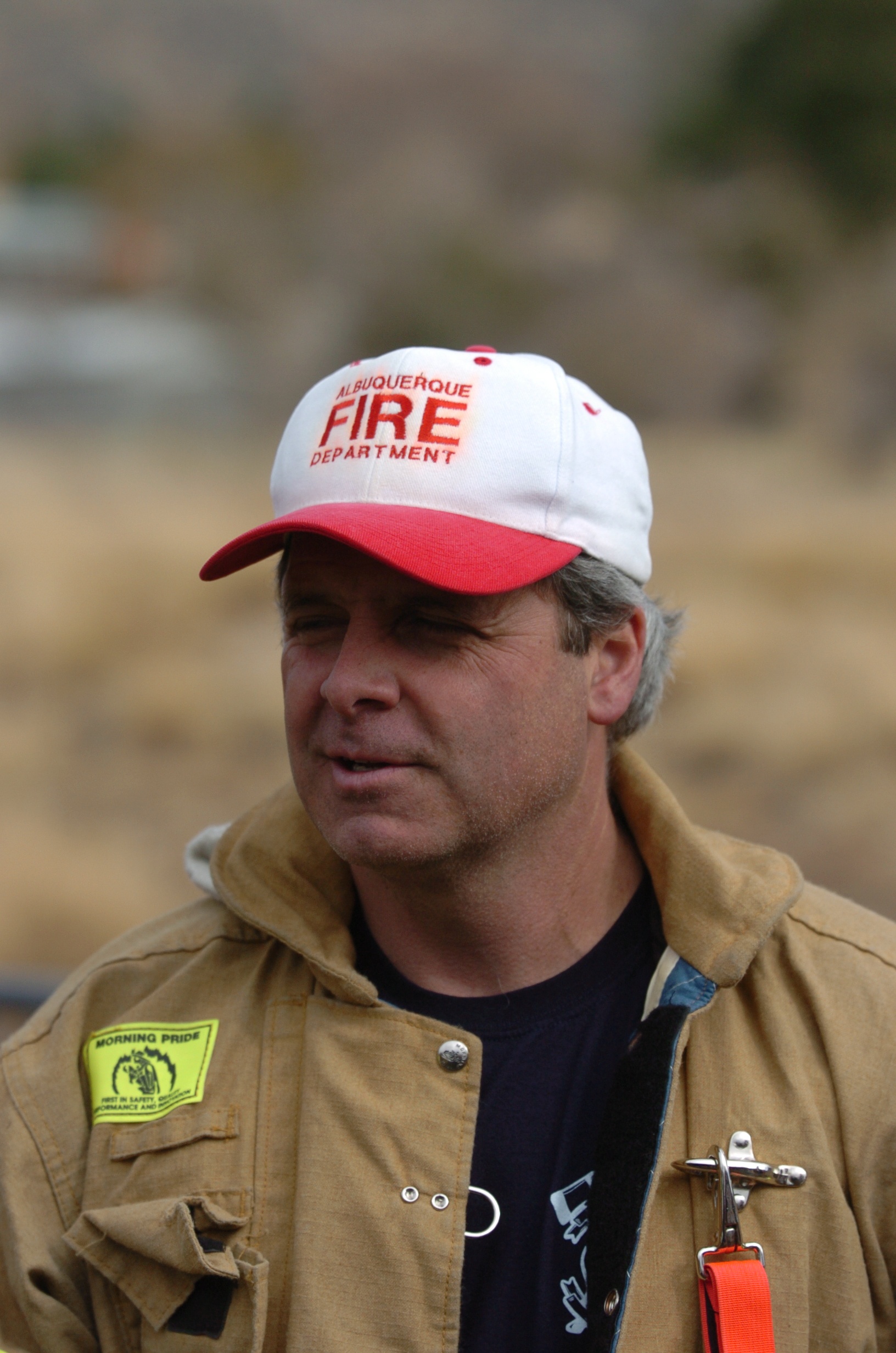One of the saddest challenges were dogs in our shelter who were shy or particularly frightened. Previously they would be killed, as they were not considered adoptable. They were so traumatized by the noisy, chaotic shelter, and the sudden shocking change in their circumstances, that they would cower at the back of their cage and avoid all human contact.
That all changed with the advent of 2 programs. First, was a foster program for behaviorally-challenged animals, including shy dogs, and animals who just needed a break from the shelter. The second was the Shy Dog program where volunteers worked with dogs who were still in the shelter to restore their sense of safety and faith in human beings. Many, of course, had been ill-treated and had no reason to trust human beings, but animals can be very forgiving.
Former Albuquerque Fire Department Chief James Breen was a life-saving pioneer in our foster program for shy dogs. One day in March of 2010, I noticed a poor dog named Sophia cowering at the back of her kennel and decided to launch a new program to help such dogs, and got my friend Jim to volunteer to take Sophia, which he did on March 30th, 2010.
Jim, a dog lover, knew how to work with Sophia to earn her trust and gradually she came around to be an adoptable dog. It wasn’t easy, but it was rewarding and a life-saving program was launched.
Jim’s kids renamed Sophia “Rosie” and worked to find her an adopter. Rosie eventually found her forever home with 3 other dogs on a lovely spread outside of town. Rosie is living happily ever after with her pack – which makes her feel safe – and her loving human.
Gradually, as we built our foster and volunteer programs, more and more dogs now spend time in special programs like these to give them a second chance at a good life. We are very proud of our compassionate programs and the people – like Jim Breen – who make them work.
And, as a result of these programs, the number of dogs euthanized at the Albuquerque Animal Welfare Department has dropped from 3,577 in 2009 to 1,302 in 2016. We have a ways to go, but we are getting there.

